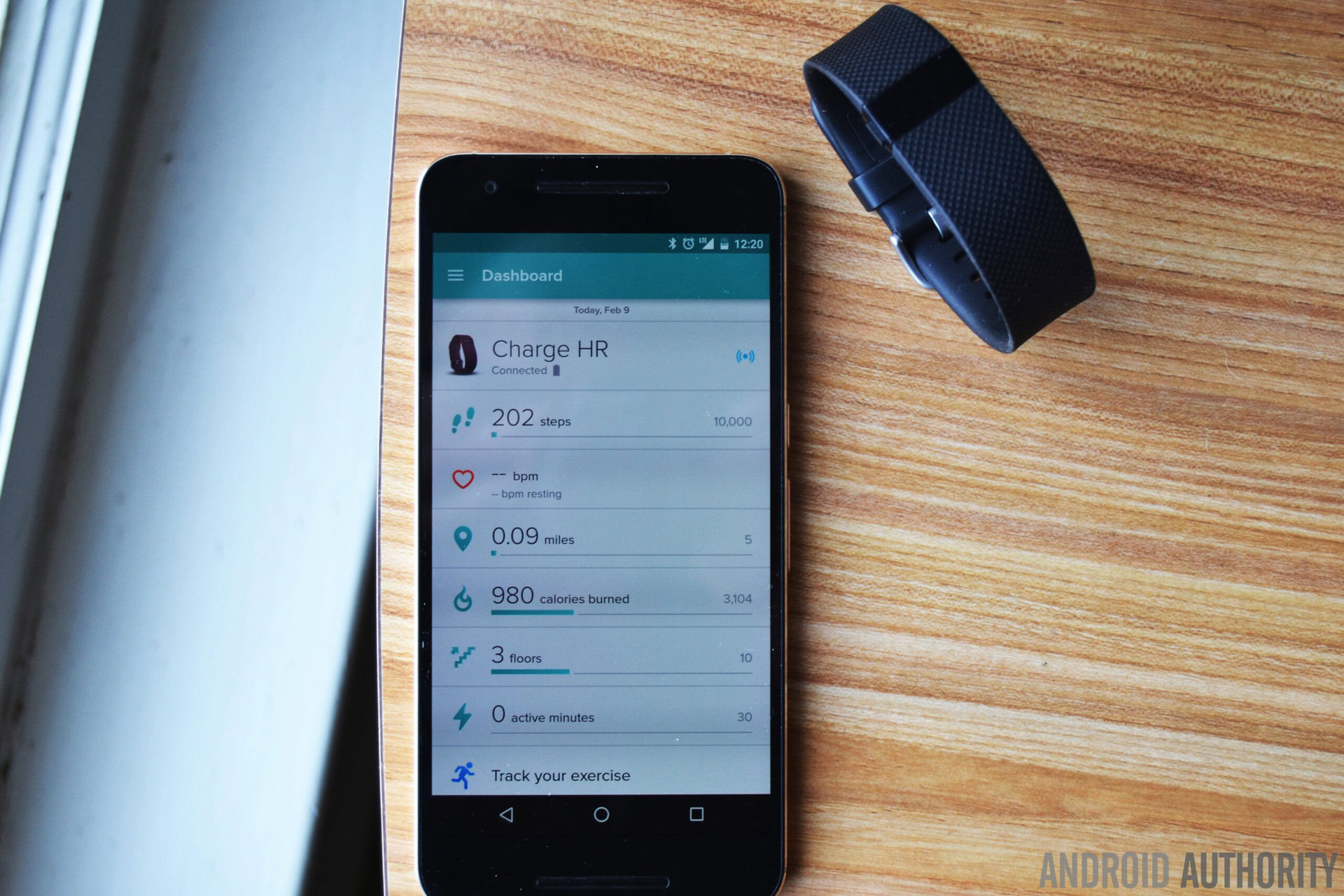Affiliate links on Android Authority may earn us a commission. Learn more.
New study claims Fitbit's heart rate monitors are inaccurate (Updated)
Published onMay 23, 2016

Original post: Over the years, Fitbit has been known to boast its PurePulse heart rate monitoring system as one of the major selling points on its wrist-mounted fitness trackers. But according to a new study funded by a group of plaintiffs in a lawsuit, the California-based company’s HR monitors aren’t actually as accurate as they lead you to believe.
The results of the study conducted by researchers at California State Polytechnic University, Pomona, claim that Fitbit’s PurePulse heart rate technology is significantly inaccurate and inconsistent. The study, which is comprised of thousands of HR readings from 43 healthy adults, claims that Fitbit’s HR readings in Charge HR and Surge devices are, on average, 20 beats per minute off, particularly during moderate to high-intensity exercise. Both the Fitbit Charge HR and Surge were tested against the readings of a time-synced electrocardiogram (ECG).
“This is about the way they market it and that they charge a premium for the heart rate monitor, but it’s not giving a meaningful measurement,” says attorney Jonathan Selbin, speaking to CNN.

Of course, Fitbit disagrees with these claims. The company has issued a statement, which you can find below:
What the plaintiffs’ attorneys call a “study” is biased, baseless, and nothing more than an attempt to extract a payout from Fitbit. It lacks scientific rigor and is the product of flawed methodology. It was paid for by plaintiffs’ lawyers who are suing Fitbit, and was conducted with a consumer-grade electrocardiogram – not a true clinical device, as implied by the plaintiffs’ lawyers. Furthermore, there is no evidence the device used in the purported “study” was tested for accuracy.Fitbit’s research team rigorously researched and developed PurePulse technology for three years prior to introducing it to market and continues to conduct extensive internal studies to test the features of our products. Fitbit Charge HR is the #1 selling fitness tracker on the market, and is embraced by millions of consumers around the globe.Consumer Reports independently tested the heart rate accuracy of the Charge HR and Surge after the initial lawsuit was filed in January and gave both products an “excellent” rating. We stand behind our heart-rate monitoring technology and all our products, and continue to believe the plaintiffs’ allegations do not have any merit. We are vigorously defending against these claims, and will resist any attempts by the plaintiffs’ lawyers to leverage a settlement with misleading tactics and false claims of scientific evidence.
We noted in our Fitbit Charge HR review that the PurePulse heart rate monitor could be quite inconsistent at times. This is pretty much the case for most other wrist-mounted wearables out there, though. If you want truly accurate HR readings, you should consider buying a chest strap.
Related: Which Fitbit is right for you?